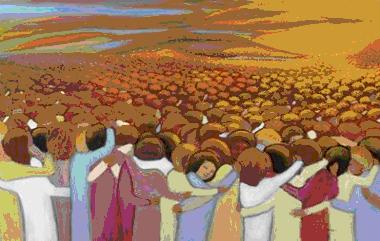- Aug 16, 2025
- 1 min read
I sing of you, migrating heron.
I sing of your whiteness and your sauntering gait in fallow land.
And I sing of you, resident hoopoe.
I sing of your little crown as you gather seeds from a plowed field.
This is how I am, my song is confused,
it plants one foot in fallow land
and another in plowed fields.
Sometimes I recite the resident’s prayer,
other times the prayer of the traveler.
-----Zakaria Mohammed (1951-2023), Palestinian poet, journalist, and novelist (translated from Arabic by Lena Khalaf Tuffaha)
